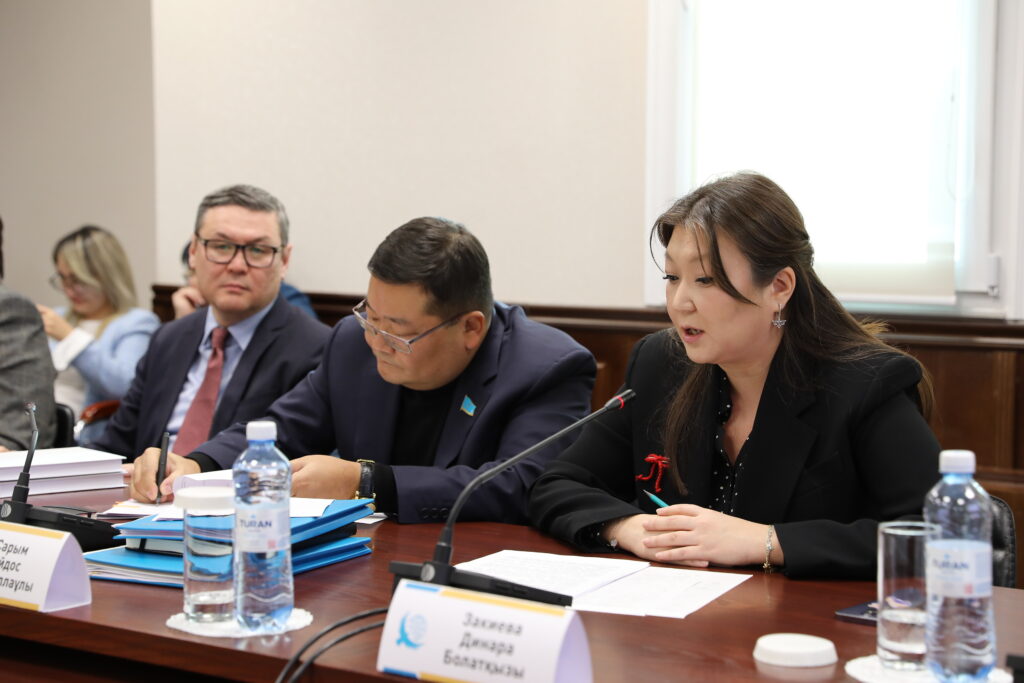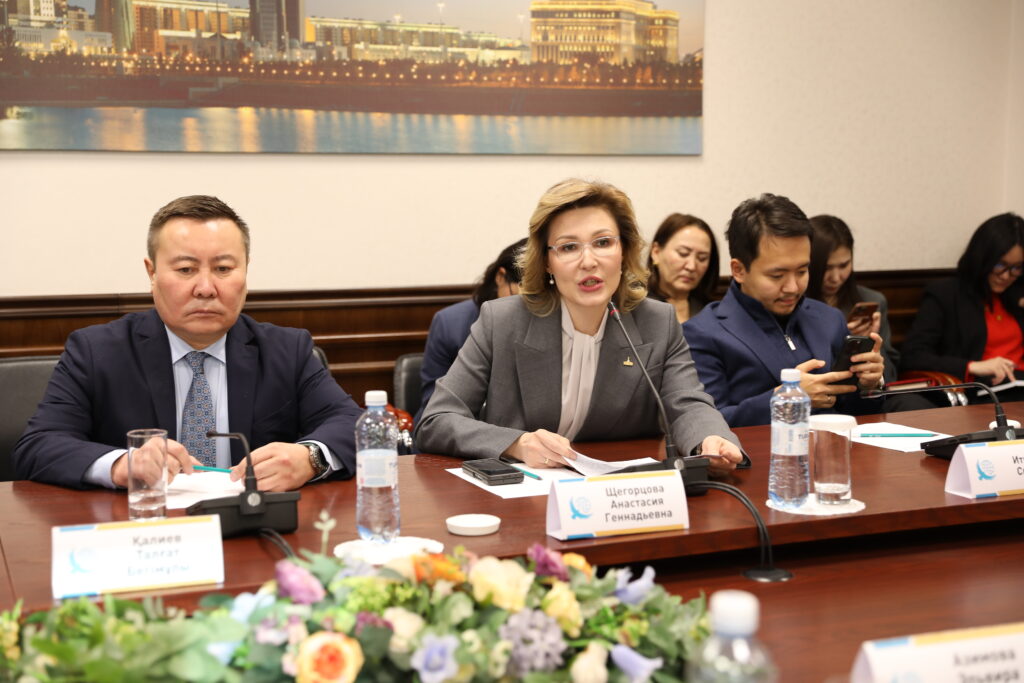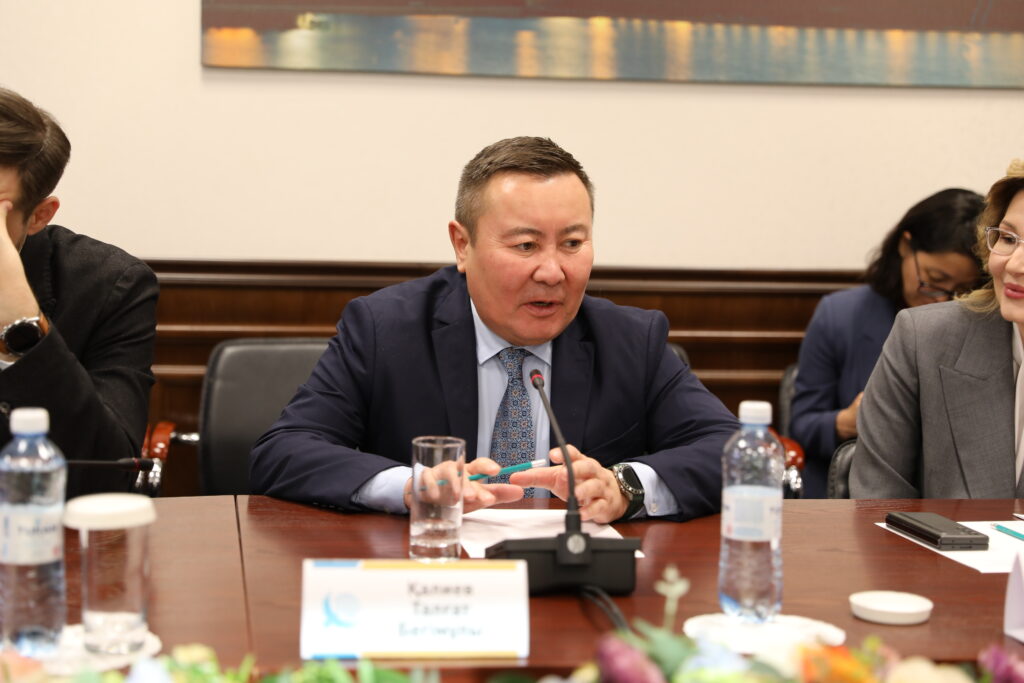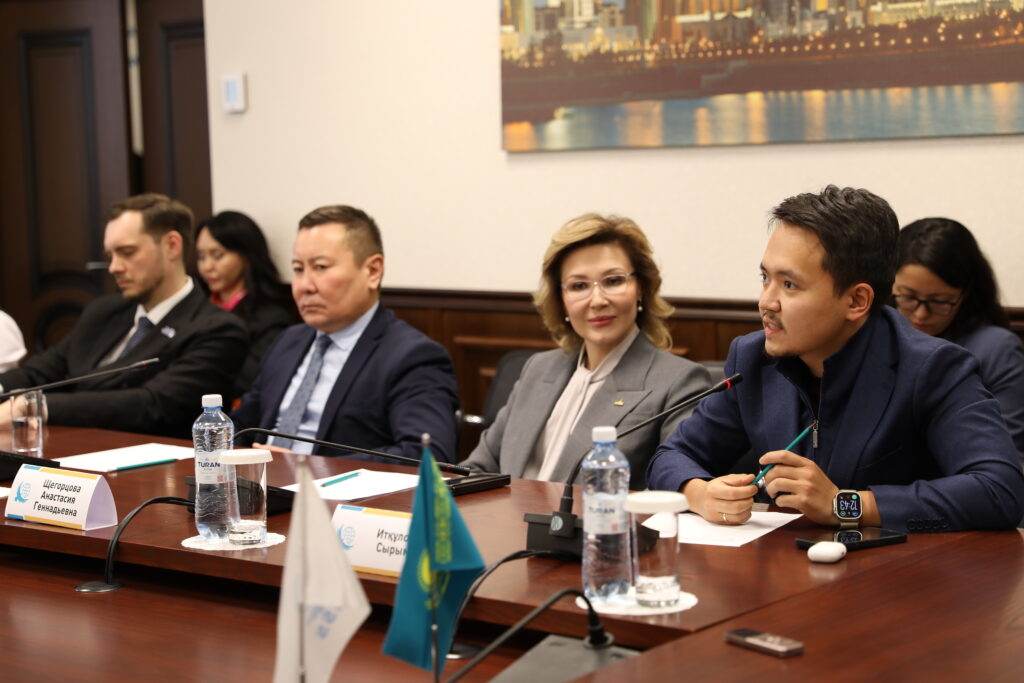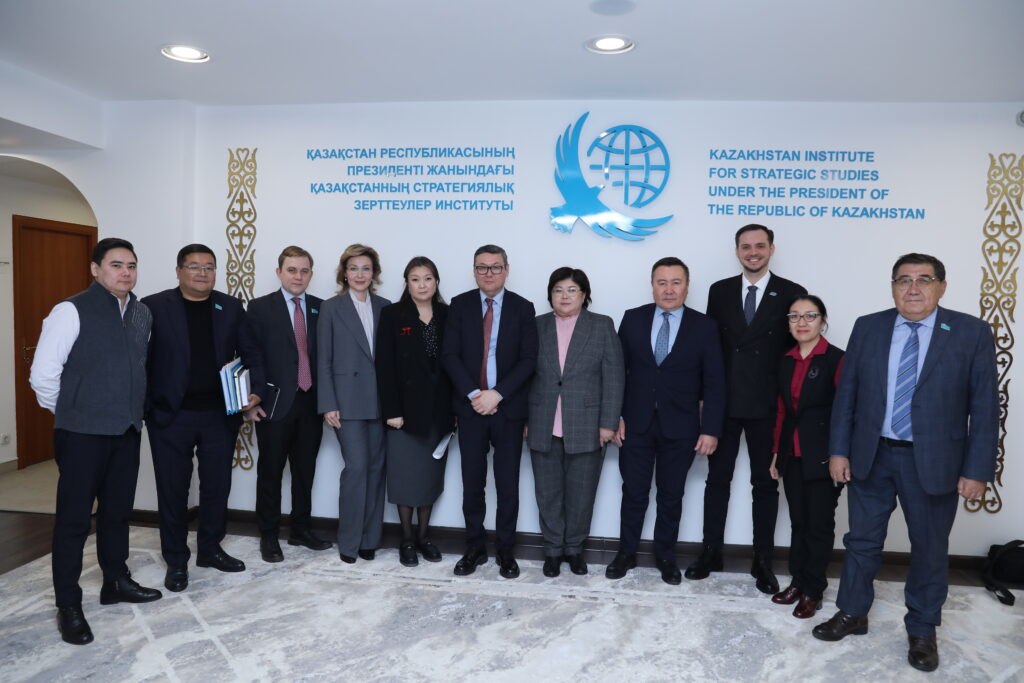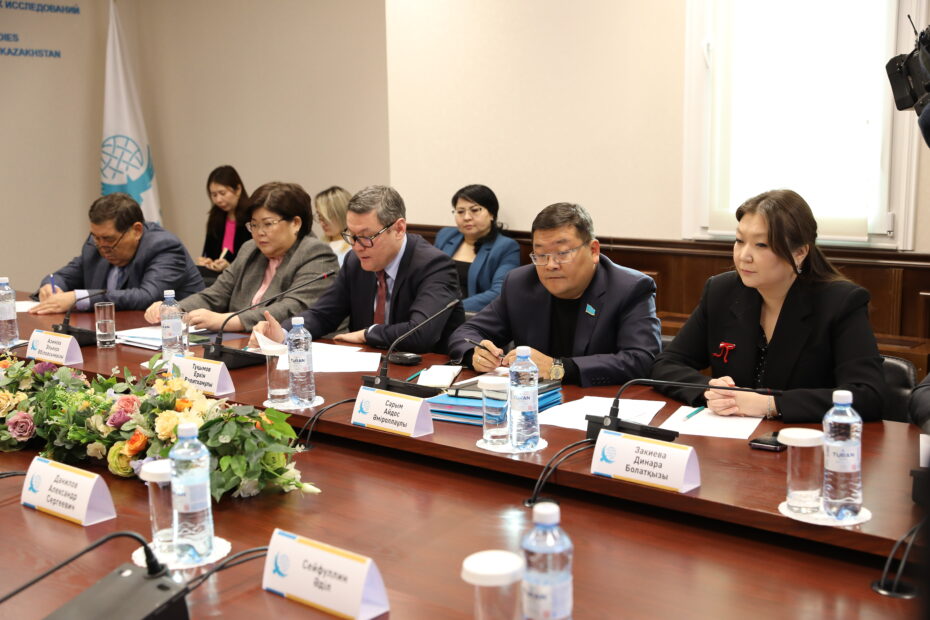On February 6, the Kazakhstan Institute for Strategic Studies under the President of the Republic of Kazakhstan hosted a meeting of the National Expert Platform “KISI GPS: Gylym. Pikir. Sayasat” on the topic “Results of Three Years of Political Reforms of K.K. Tokayev.”
Participants in the discussion—including representatives of government agencies, parliamentarians, heads of leading think tanks, independent experts, and public figures—examined the key aspects of the political reforms implemented in Kazakhstan over the past three years and their impact on governance, the legal system, and civil society.
Unprecedented Democratic Reforms in Kazakhstan
Opening the discussion, KazISS Director Yerkin Tukumov emphasized that Kazakhstan has implemented unprecedented democratic reforms over the past three years, not only within the country but across the entire post-Soviet space.
“As the Head of State has repeatedly stressed, sustainable progress is impossible without political modernization. In a world marked by instability, comprehensive political reforms signal to the international community that Kazakhstan is confident in its path, with a united and cohesive nation. President Tokayev has demonstrated that, despite internal and external challenges and an overall unfavorable global climate, Kazakhstan chooses the path of development, progress, and reform. The alternative—preserving the old political system—would have led to prolonged economic and social stagnation, detrimental to the country,” said Tukumov.
He also highlighted that the ultimate goal of the reforms is to improve the well-being of every Kazakhstan, strengthen sovereignty, reinforce democratic institutions, and establish new political traditions.
Rule of Law as a Core Principle
Elvira Azimova, Chair of the Constitutional Court of Kazakhstan, noted that within the “Just Kazakhstan” framework, the country is reinforcing the rule of law, implementing comprehensive human rights protections, and strengthening legal institutions—foremost among them, the re-established Constitutional Court.
“The Constitutional Court plays a crucial role in ensuring constitutional compliance. It has become a key element of the checks and balances system, safeguarding the constitutional rights and freedoms of citizens. The court reviews laws and regulations for constitutionality and resolves constitutional disputes, guaranteeing legal order in Kazakhstan. Its formation follows the principles of independence and fairness, allowing it to effectively fulfill its functions,” Azimova emphasized.
Political Reforms: A Conscious Strategy, Not a Reaction
Aidos Sarym, a deputy of the Majilis of Parliament, refuted the notion that the government was forced into political reforms due to external circumstances, such as the January 2022 events.
“Democratic processes were not merely a reaction to negative events. In reality, political reforms are at the core of President Tokayev’s philosophy,” he asserted.
Speaking about the necessity and demand for social and political reforms, Sarym noted that Kazakhstan had reached an economic ceiling between 2015 and 2019.
“By that period, we lacked the potential to sustain economic growth. The population had increased by five million, but the economy was not capable of absorbing and providing social benefits for these additional citizens. Political and social reforms were inevitable. Even then, some ‘Listening State’ institutions were being developed to ensure that authorities were prepared for changes,” he explained.
Gradual Shift Toward Democratic Values
Yermurat Bapi, another Majilis deputy, acknowledged the positive democratic transformation over the past three years, including key legislative initiatives.
“However, reforms cannot be implemented through legislation alone. A shift in public consciousness is necessary. For 30 years, society was in a state of stagnation. Therefore, changes must be introduced gradually. The transition toward democratic values in public perception is still ongoing,” Bapi noted.
Strengthening Legal Protections for Women and Children
Kazakhstan’s Children’s Ombudsman, Dinara Zakiyeva, highlighted reforms related to the rule of law and legal protections for women and children. She provided insights into the progress of her institution’s work:
✔ 200 Family Support Centers have been opened, with 125 more planned;
✔ 45,000 monitoring raids have been conducted for at-risk families;
✔ Psychological Support Centers have been established in all regions;
✔ Soon, Child Protection Departments will be launched nationwide.
Zakiyeva also noted that UNICEF highly appreciates Kazakhstan’s efforts in child protection.
Reforming Political Institutions for Stability and Trust
Majilis deputy Nikita Shatalov emphasized that President Tokayev’s political reforms are closely linked to national traditions and institutions inherited from the past 30 years.
“Institutions are not just buildings where deputies, judges, or prosecutors work. They are rules and regulations that must be consistently followed. One of the key tasks of Tokayev’s reforms is to institutionalize these rules—to make them permanent. For example, elections must be regular events,” Shatalov explained.
He also highlighted a growing public trust in elected local officials (akims), which strengthens the bond between government and citizens and contributes to economic stability.
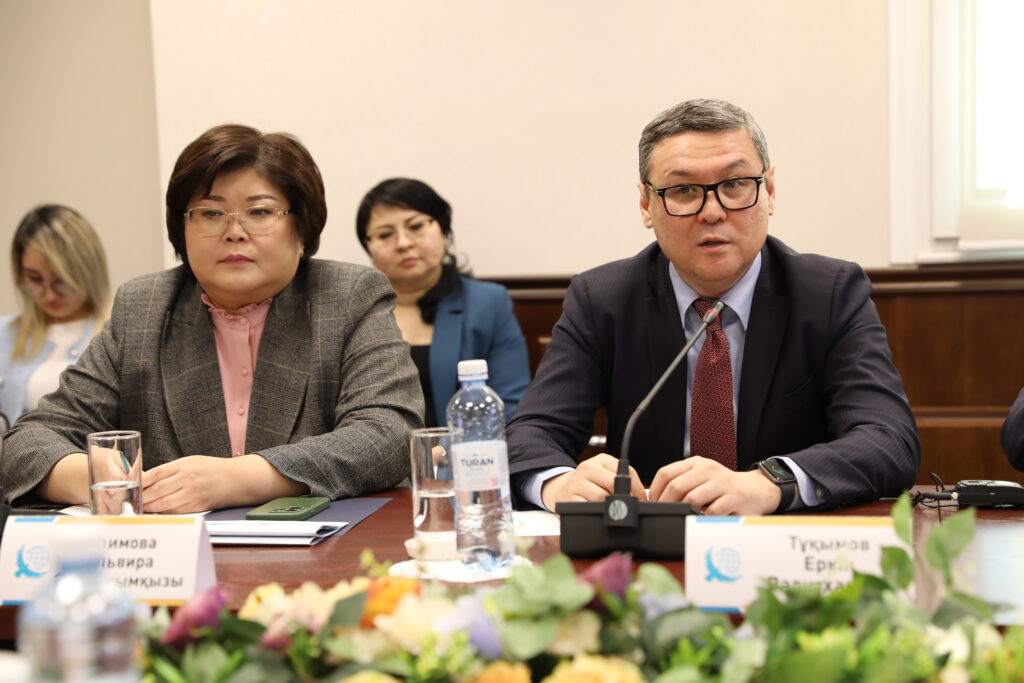
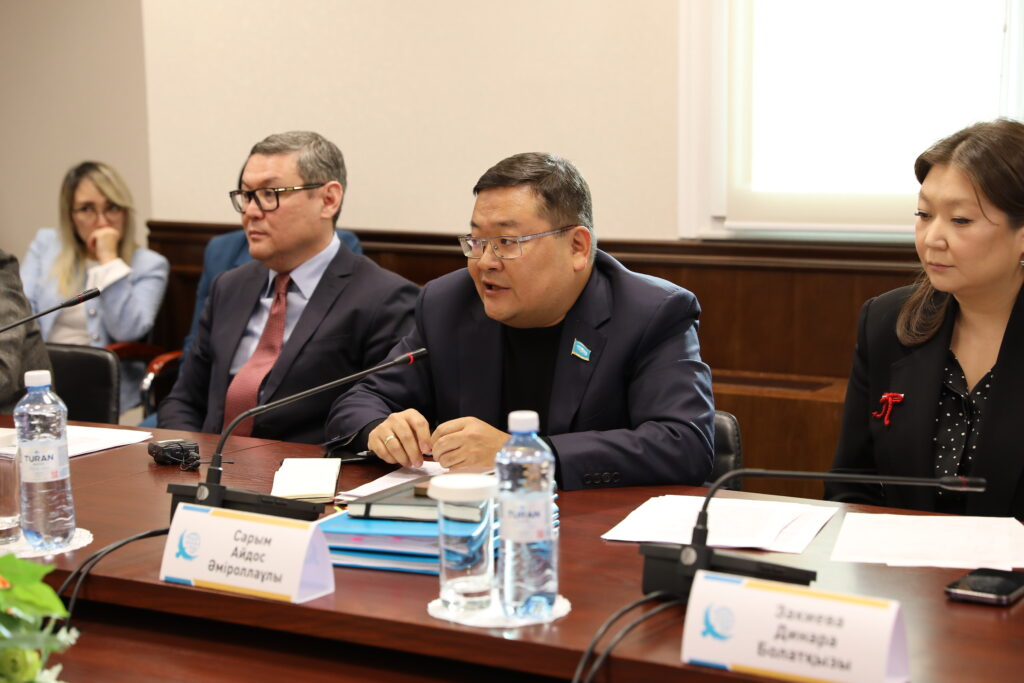
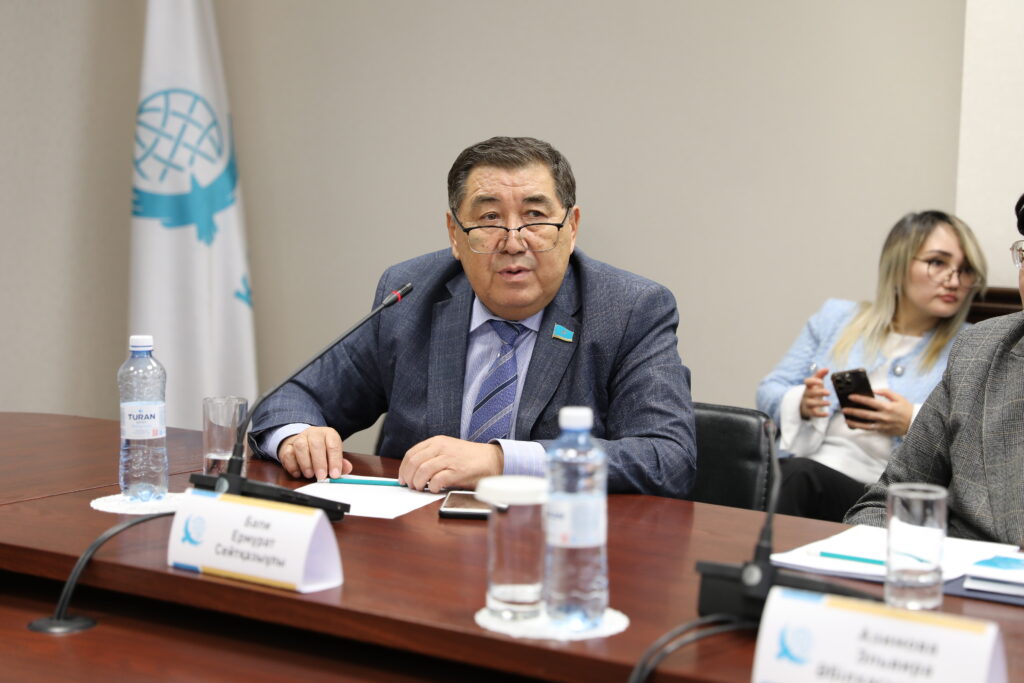
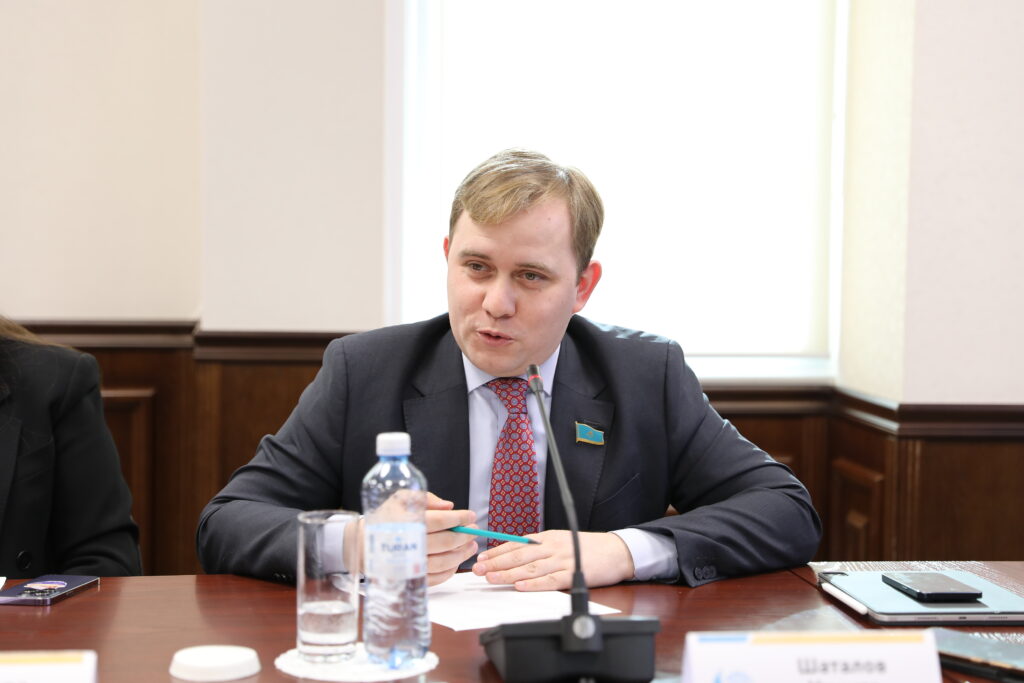
The Role of Civil Society in Reforms
Anastasia Shchegortsova, Deputy Head of the Secretariat of the Assembly of the People of Kazakhstan, stressed that public support is essential for successful reforms.
“Civil society has become not just a beneficiary but an active participant in the President’s reforms. Today, Kazakhstanis live in a new political reality—with new ethics, rules, and political culture. This includes new institutions like online petitions and the Constitutional Court,” she stated.
Shchegortsova also highlighted the transformation of the Assembly of the People of Kazakhstan (APK) from a consultative body into a constitutional entity with parliamentary representation.
Reforms Amid Global Challenges
Political scientist Talgat Kaliyev pointed out that Kazakhstan undertook reforms during a period of global turbulence, including the January 2022 crisis and heightened geopolitical tensions.
“This could have been an excuse to delay reforms, waiting for more favorable conditions. The risks were greater than the potential benefits. It was bold to proceed under such circumstances,” he said.
Kaliyev emphasized that while reforms change structures, their effectiveness depends on cooperation between civil society and government institutions.
A New Era of Political Transparency
Alexander Danilov, co-founder of the Astana Open Dialogue platform, noted that Kazakhstan defied expert expectations by continuing political liberalization instead of tightening restrictions after the January 2022 events.
“The most important result is that there has been no regression. We continue democratization. However, much work remains to assess these reforms, and KazISS plays a key role in their monitoring,” he said.
Political Culture and Public Awareness
Political scientist and media manager Syrym Itkulov argued that one of the key outcomes of political reforms should be the enhancement of information culture.
“We are witnessing a high level of political awareness in society, with people realizing that government decisions affect everyone. Therefore, responsibility is needed—both from politicians and the public, and most importantly, fairness for all,” he stated.
Reforms as a Foundation for a Just Society
Political scientist Adil Seyfullin emphasized that the ultimate goal of reforms is to build a just state and society where law and order are core values.
KaziSS’s survey results confirm this:
✔ 84.1% of respondents consider justice a top national value;
✔ 83.5% of respondents prioritize law and order.
Conclusion: A Solid Foundation for Kazakhstan’s Future
Experts concluded that political reforms have laid a strong foundation for Kazakhstan’s sustainable development, effective governance, and societal unity. The country is now on a path toward deeper civic engagement and a more resilient democracy.
